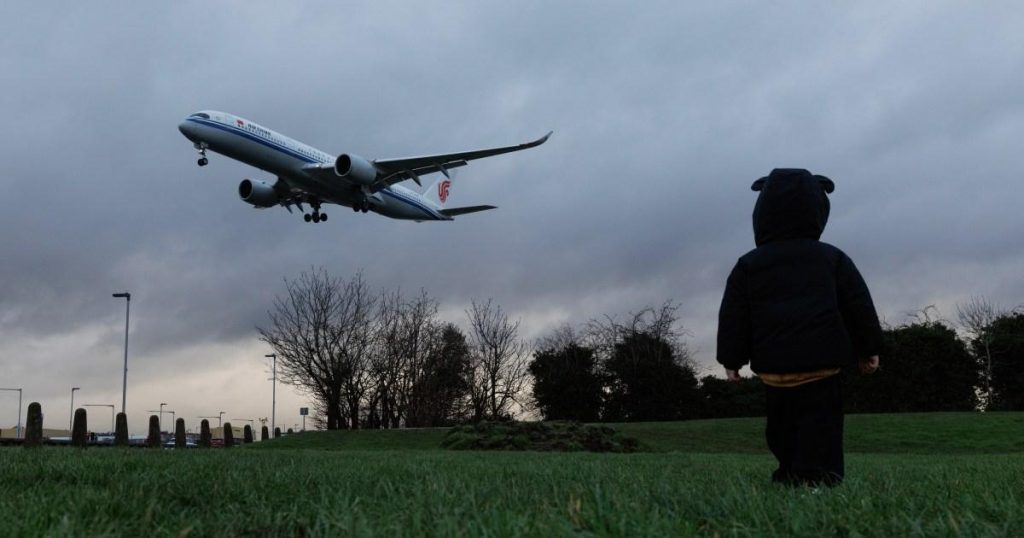Rachel Reeves’ Transport Plan: A Mixed Bag of Progress and Peril
Chancellor Rachel Reeves’ recent transport announcements have sparked a heated debate, with some lauding her focus on rail investments while others condemn her support for Heathrow expansion. The proposed development of the Cambridge-Oxford corridor, including the East West Rail project, is seen as a positive step towards improved connectivity. Suggestions for incorporating Luton and Northampton into this corridor, along with reinstating rail links between smaller towns and major cities, further highlight the potential for revitalizing regional transport networks. However, Reeves’ endorsement of Heathrow expansion has drawn sharp criticism, with concerns raised about its environmental impact and compatibility with long-term climate goals. Critics argue that expanding air travel contradicts the urgent need to reduce greenhouse gas emissions and that investing in sustainable transport alternatives should be prioritized.
The Heathrow Dilemma: Economic Growth vs. Environmental Responsibility
The debate surrounding Heathrow expansion centers on the conflict between economic development and environmental protection. Proponents argue that expanding the airport will boost the economy, create jobs, and enhance global connectivity. However, opponents contend that the environmental costs far outweigh any potential economic benefits. The aviation industry is a significant contributor to greenhouse gas emissions, and expanding Heathrow would exacerbate the climate crisis. Furthermore, the projected timeline for the expansion raises questions about its feasibility in a world increasingly impacted by climate change. Critics argue that by the time the expansion is complete, Heathrow may be rendered unusable due to rising sea levels or a shift towards more sustainable modes of transport.
Beyond Heathrow: A Broader Vision for Sustainable Transport
While the Heathrow expansion dominates the headlines, the discussion also encompasses broader issues related to transport planning and sustainability. The need for a more holistic approach to transport development, one that prioritizes environmental protection, social equity, and long-term resilience, is emphasized. Critics argue that the current focus on short-term economic growth ignores the long-term consequences of unsustainable practices. The emphasis on reopening existing rail lines and connecting smaller towns to major cities reflects a growing recognition of the importance of regional connectivity and the potential of rail transport to reduce reliance on cars and airplanes.
The Spectre of ‘Boom and Bust’ Economics and Societal Concerns
Reeves’ emphasis on rapid growth has drawn comparisons to previous economic policies that prioritized short-term gains over long-term stability. Critics argue that this approach risks repeating the cycle of "boom and bust" economics, which can lead to economic instability and social inequality. Concerns are also raised about the broader societal impacts of unchecked development, including increased pollution, noise, and the loss of green spaces. These factors can have a detrimental effect on public health and well-being, placing further strain on an already overburdened healthcare system. The debate highlights the need for a more balanced approach to development, one that considers the long-term social and environmental consequences of economic policies.
The Erosion of Public Trust: Shoplifting and Germ Spreading
Beyond the realm of economic policy, the discussion also touches upon issues of public order and social responsibility. The prevalence of shoplifting, often unchallenged, raises concerns about the erosion of social norms and the effectiveness of law enforcement. Similarly, the reluctance to confront individuals spreading germs in public spaces, even during a time of heightened awareness of infectious diseases, reflects a complex interplay of social anxieties and individual responsibilities. These anecdotes underscore the challenges of maintaining social order in a rapidly changing world and the need for greater civic engagement.
The Personal and the Political: Food Choices and Economic Inequality
The seemingly mundane topic of weekly meal planning also finds its way into the conversation, revealing a connection between personal choices and broader economic realities. The prevalence of sticking to the same meals each week, often driven by financial constraints and the need to minimize food waste, highlights the impact of economic hardship on everyday life. Meanwhile, the critique of billionaires and their limited contribution to the economy, compared to a larger number of millionaires, underscores the growing concern about wealth inequality and its potential to destabilize economic systems. These disparate threads converge to paint a picture of a society grappling with complex economic and social challenges.











